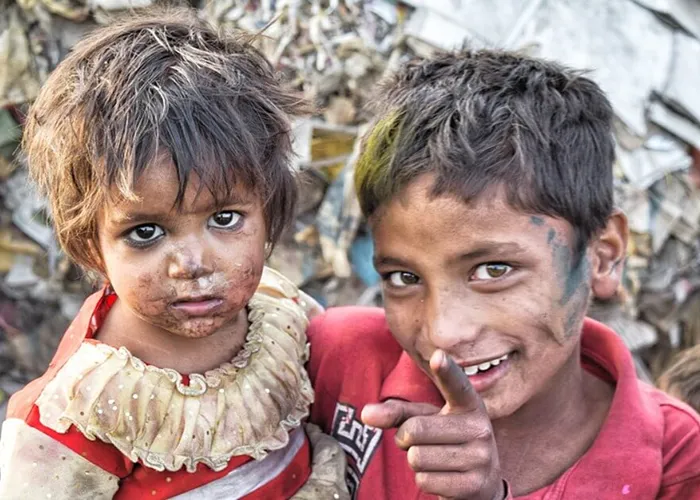Ayah Of The Week – Volume02 Issue42
When Generosity Becomes Worship: Reflections on the Qur’anic Call to Eradicate Poverty
Introduction
On 17 October, the world observes the International Day for the Eradication of Poverty. Yet more than fourteen centuries before such a commemoration was conceived, Islam had already established a comprehensive moral and economic system aimed at eliminating poverty and fostering social justice – through principles such as zakāh, khums, and sadaqah (charitable giving).
In this spirit, the “Ayah of the Week” in this issue highlights a powerful Qur’anic message about giving, drawn from Sūrat al-Baqarah (2:274):
الَّذِينَ يُنْفِقُونَ أَمْوَالَهُمْ بِاللَّيْلِ وَالنَّهَارِ سِرًّا وَعَلَانِيَةً فَلَهُمْ أَجْرُهُمْ عِندَ رَبِّهِمْ وَلَا خَوْفٌ عَلَيْهِمْ وَلَا هُمْ يَحْزَنُونَ (البقرة، ۲۷۴)
“Those who spend their wealth by night and by day, secretly and openly, will have their reward with their Lord; no fear shall be upon them, nor shall they grieve.” (Qur’an 2:274)
Educational Messages of the Ayah for Teens and Youth
- Give from What You Love
True generosity means sharing what you value, not only what you no longer need.
Practical Challenge: Each week, give away one thing you personally value – time, skill, or an item – to benefit someone else.
- Charity Is Not Just Money
Giving can take the form of knowledge, skills, time, or support – every good act counts.
Practical Challenge: Do one act of kindness each day (help a friend study, listen to someone, volunteer online or locally).
- Be Consistent in Doing Good
Allah praises those who give “day and night” – meaning constantly, not occasionally.
Practical Challenge: Create a personal “giving habit”; even if it’s just donating a small coin or sending an encouraging message daily.
- Give Without Seeking Recognition
The verse values secret giving more than public giving; sincerity is worth more than praise.
Practical Challenge: Perform one good deed each week without telling anyone – just between you and Allah.
- Empathy Builds Faith
Understanding others’ struggles deepens compassion and strengthens faith.
Practical Challenge: Spend one afternoon volunteering or learning about challenges faced by less fortunate people in your community.
- Helping for Allah Never Brings Regret
Those who help others sincerely for the sake of Allah will never regret it; their reward is inner peace and lasting happiness.
Practical Challenge: Each time you help someone, remind yourself: “I am doing this for Allah alone” and observe how that changes how you feel afterward.
Educational Messages of the Ayah for Parents
- Model Generosity at Home
Children learn charity by observing it in action.
Practical Challenge: Set up a small family donation box and let children decide together where to give each month.
- Teach Giving as Gratitude
Charity is not a loss but a thank-you to Allah for His blessings.
Practical Challenge: During family gatherings, mention one blessing and encourage everyone to give something in gratitude for it.
- Balance Public and Private Giving
Give publicly to inspire others, but privately to purify the heart.
Practical Challenge: Alternate between open and quiet acts of charity as a family practice.
- Encourage Dignified Helping
Support others respectfully, without making them feel dependent or ashamed.
Practical Challenge: When helping someone, focus on empathy and discretion — not publicity or superiority.
- True Faith Is Lived, Not Just Spoken
Real religiosity is not in words or appearance alone, but mainly in actions that reflect obedience to Allah’s commands.
Practical Challenge: Choose one Qur’anic teaching – such as honesty, patience, loyalty, or generosity – and make it a visible family practice this week.
Educational Messages of the Ayah for Imams, Preachers, and Religious Scholars
- Revive the Qur’anic Spirit of Economic Justice
Charity is not only individual piety but a tool of social balance.
Practical Challenge: Dedicate one sermon each month to economic ethics in Islam – linking zakāh, waqf, and fair trade to today’s realities.
- Promote Practical Initiatives
Encourage community-led projects that embody the Qur’anic model of giving.
Practical Challenge: Partner with youth groups or mosques to launch a “Continuous Giving” initiative in your area.
- Teach Sincerity in Service
Emphasise that helping others should seek divine reward, not social fame.
Practical Challenge: Begin community programmes with reflection on niyyah (intention) and humility before action.
- Connect Global Poverty to Local Responsibility
Remind believers that global suffering calls for local action.
Practical Challenge: Organise awareness sessions linking Qur’anic ethics with humanitarian issues like refugee care or food insecurity.
editor's pick
news via inbox
Subscribe to the newsletter.




